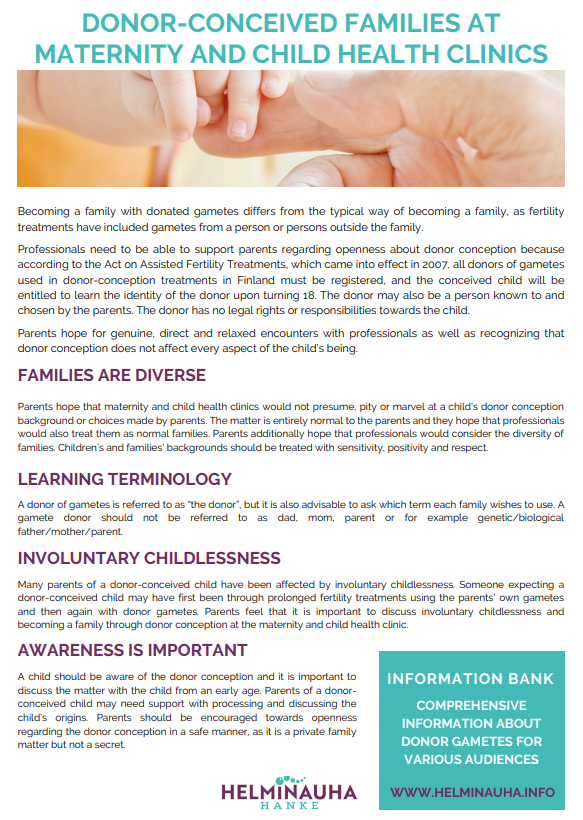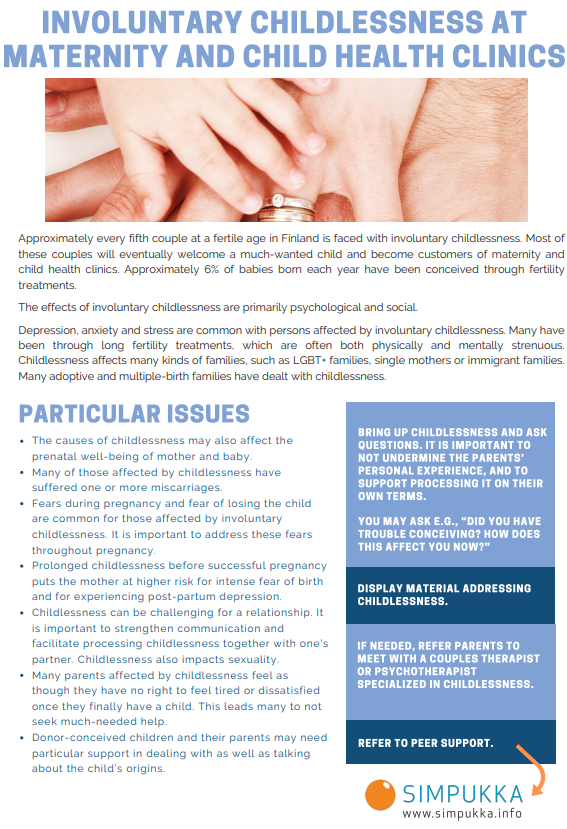Information for professionals
Table of contents
Information for professionals
Family formation with the help of donor gametes differs from the ordinary way of becoming a family because a donor’s gametes have been used in the fertility treatments. A professional must know how to support parents to be open about the donor gamete background because according to the fertility treatment law of 2007, the donors of the donor conception treatments are registered in Finland and the child has a right to find out the gamete donor’s information after they turn 18.
Special points to note in the work of a midwife or in maternity and child health clinics
- The reasons behind childlessness can affect the wellbeing of the mother or the baby during pregnancy.
- Fears during pregnancy and the fear of losing the child are common for people that have experienced involuntary childlessness.
- Many parents that have experienced childlessness think that they do not have the right to feel tired or dissatisfied because they finally have a child. That is why many do not ask for help that they may need.
- Donor-conceived children and their parents may need special support to process the origins of the child and to talk about the donor background.
- The best way to meet a person that has experienced childlessness is to bring it up and ask for more information respectfully.





